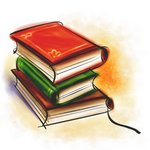Library Media Center
Contact: Lori McCrory
Phone: (334) 897-6275
Media Center Rules
Come in quietly.
Don’t abuse library books.
Don't run or push in the library.
Wait in the line patiently.
Speak softly.

Click here to go to the OPAC!
eBooks are available for Zion Chapel students! See the Getting Started information under "forms".
Click here to go to Zion Chapel's eBook Library.
Resource Links
- Alabama Virtual Library
- Awesome Library
- Info Please
- Ref Desk
- Easy Bib
- Channel One
- CNN Student News
- PBS News Hour Extra
- Scholastic News Online
- Live Science
- Science Daily
- Science News
- Science Current Events
- University of Alabama
- Auburn University
- University of South Alabama
- Troy University
- Enterprise State Community College
- Jacksonville State University
- Enterprise Public Library
- Troy Public Library
- Tupper Lightfoot Memorial Library
- Fact Monster
- Purple Math
- Homework Alabama
- MLA Style
- Newbery Medal Home Page
- Learn Out Loud
- Library of Congress
- Federal Student Aid
- Official Site for the State of Alabama
- The White House
- Smithsonian Museum
- Alabama Governor's Office
- Safe Kids
- Discovery Education for Parents
- Family TLC
- Ed Sitement
- Guys Read
Reference Interviews
Reference Interviews are now available via email for Zion Chapel students and faculty. The Reference Interview document can be located by clicking on Forms near the top of this page. Simply download the document, fill in the blanks, and email it to Ms. McCrory, and she will reply with an answer as soon as possible. Please allow 3-5 school days. Last-minute requests may not be met.
Philosophy & Beliefs
The primary philosophy of the Coffee County School System Library Media Programs is to meet the information and reading needs of students and faculty. In order to carry out this goal the library must first select and make accessible to students, faculty, and parents the best resources available to meet curriculum and individual needs.
“Reading is a window to the world. Reading is a foundational skill for learning, personal growth, and enjoyment. The degree to which students can read and understand text in all formats and all contexts is a key indicator of success in school and in life. As a lifelong learning skill, reading goes beyond decoding and comprehension to interpretation and development of new understandings.”
“Inquiry provides a framework for learning. To become independent learners, students must gain not only the skills but also the disposition to use those skills, along with an understanding of their own responsibilities and self-assessment strategies. Combined, these four elements build a learner who can thrive in a complex information environment.”
“Ethical behavior in the use of information must be taught. In this increasingly global world of information, students must be taught to seek diverse perspectives, gather and use information ethically, and use social tools responsibly and safely.”
“Technology skills are crucial for future employment needs. Today’s students need to develop information skills that will enable them to use technology as an important tool for learning, both now and in the future.”
“Equitable access is a key component for education. All children deserve equitable access to books and reading, to information, and to information technology in an environment that is safe and conducive to learning.”
This information was adopted from the AASL 21st Century Learning Standards for Library Media.
